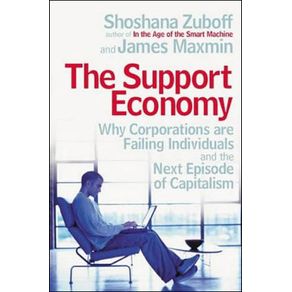This husband-and-wife team Zuboff's a Harvard professor and author of In the Age of the Smart Machine, and Maxmin's the former CEO of Volvo and Laura Ashley give socialist utopians of yesteryear stiff competition with their manifesto for a more personalized capitalism. They strive for the pop socioeconomics of a David Brooks or a Malcolm Gladwell, but their heavy academic style may disenchant some readers before their thesis's more radical parts kick in. Over the last two centuries, they argue, an increasingly efficient economy, coupled with a rise in democratic thinking and growing access to information, has opened up life's possibilities to increasing numbers of people. Because participation in the consumption-based economy is unavoidable, the general public looks to markets to provide "deep support" in their quest for individualization, but "are routinely punished for being complex psychological individuals in a world still fitted out for the old mass order." This macroeconomic structure treats people as either employees or consumers and inevitably hurts their feelings. Zuboff and Maxmin would eliminate the "little murders" of customer service interaction by replacing the current transaction-based model with a form of "distributed capitalism" based on a customer-supplier relationship, so semi-anonymous customer service reps will be replaced by "advocates" fully emotionally involved in their clients' needs. It's not clear how society will make its way to the authors' dream of a fully automated lifestyle, or what life will be like for blue-collar workers and manual laborers. Pundits who celebrated the Internet's potential to thoroughly revolutionize the economy, however, will no doubt rally behind these impractical visions.



